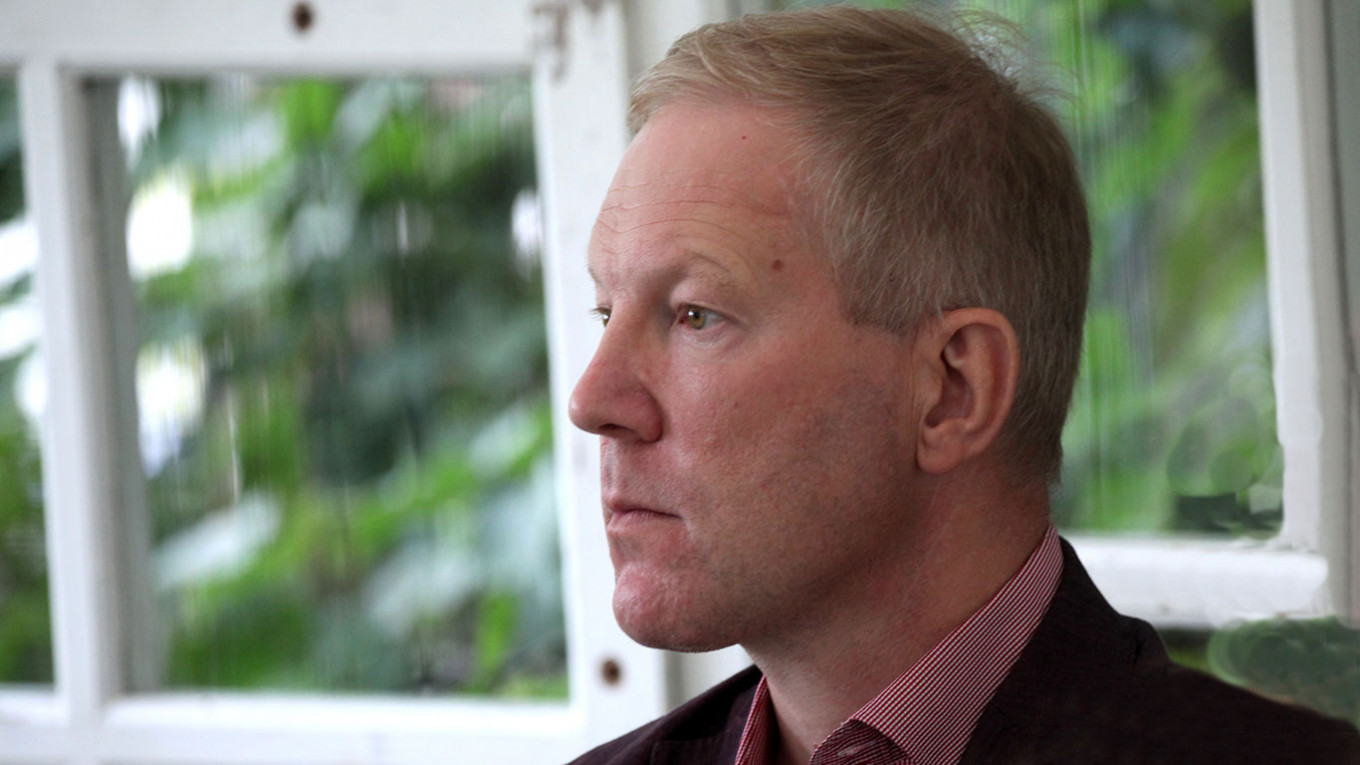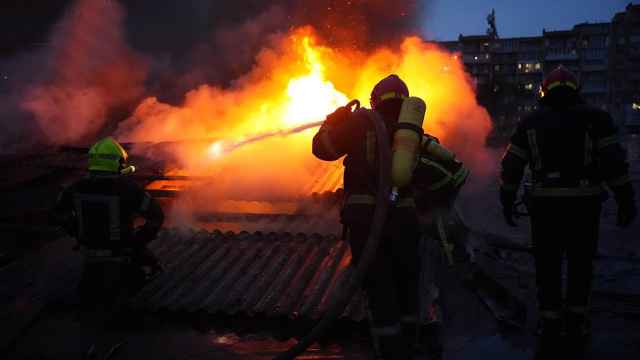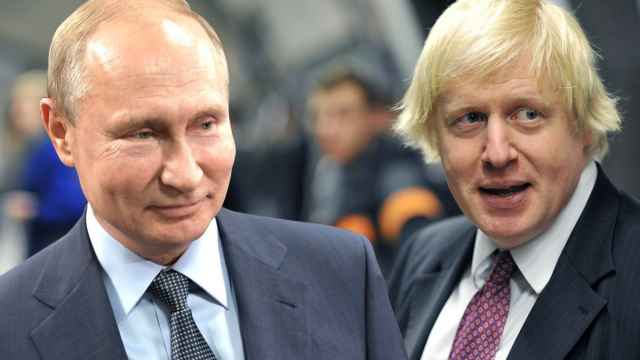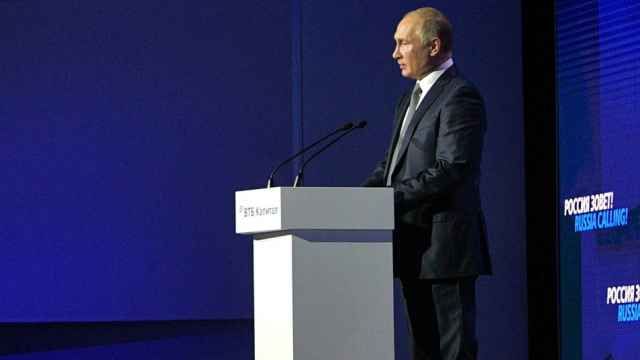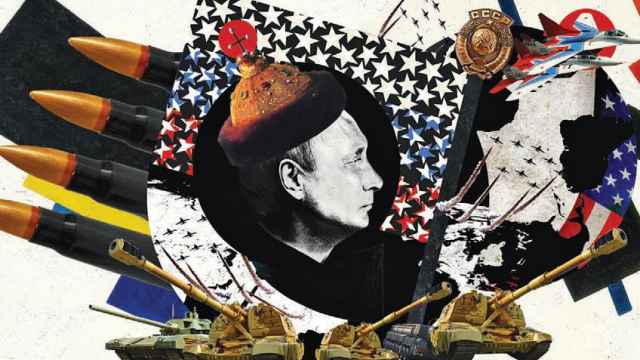What is the difference between NATO enlargement and the expansion of Russia?
While the first takes place on voluntary terms and with the agreement of its members for the sake of defending democratic countries, the second shows an authoritarian nuclear power in the grip of nostalgia for its empire trying to extend its influence through a brutal breach and self-serving interpretation of international law.
In all this, Russia has not been provoked by the enlargement of NATO, which has created a peaceful and stable neighbourhood around the Russian borders, but rather by the pain of losing a totalitarian empire and witnessing the success of its former vassals in building democratic and free societies. And that poses an existential threat to the authoritarian regime in Russia.
Some days ago, between meetings in Moscow, I took a moment to lay flowers on the spot where one of the best known democrats of modern Russia — Boris Nemtsov — was killed on Bolshoi Moskvoretsky Bridge in the shadow of the Kremlin.
Boris had been a good friend of mine and we had always had fascinating discussions about the present and the future of Russia. His absence is profoundly felt in Russia today. The authorities are doing everything they can to erase Nemtsov from the popular memory because a country with totalitarian leanings cannot allow the existence of freedom of expression or debates about alternative routes to development among its citizens.
Through the decades, Russia has painted democratic Western countries as scary enemy figures trying to obtain access to its riches and destroy its “thousand year old civilisation.”
People have been told since childhood that the United States and NATO are trying to surround Russia on all sides and annihilate its nationhood. This lie has been used to manipulate millions at home and abroad to justify Russia’s aggressive foreign policy vis-à-vis the democratic West.
Historical parallels offer us food for thought. Just like in the 1930s, Russia has come to the realisation that the situation in Europe is ripe for changing the current status quo.
In addition to restoring its empire, totalitarian Russia dreams of forcing its rules on the democratic West, setting up new zones of influence, and marginalizing the role of the United States in global politics. To this end, even the nuclear button is not out of bounds, at least in words.
One question has been asked repeatedly of late: Why is Russia ramping up the tension now of all times?
Minister of Foreign Affairs Sergey Lavrov said at a press conference last year that it is all the fault of the West, which has set out to destroy the architecture of international relations based on the Charter of the United Nations, with no consideration for Russia’s security fears or honouring its own promises.
Lavrov reiterated the Kremlin narrative of how NATO had broken its promise and enlarged, and how the “coup” in Ukraine was a threat to Russia’s security. As expected, he said not a word about Russia’s own aggressiveness, using force to move borders, or neutralising internal democratic institutions and dismantling civil society, which pressured Russia’s democratic neighbours into seeking a security guarantee by joining NATO.
War wagon
Those who have witnessed the advance of the Russian war wagon with their own eyes, are probably keenly aware that it cannot be stopped by gentle words alone.
As a young journalist covering the first Chechen war from 1994-1996, I learned what Russian authorities were capable of. The carpet bombing of Grozny killed thousands upon thousands of citizens. For what? To stop the empire from disintegrating and the free will of the people from becoming the norm.
Just as the destruction of the Chechens benefited from the mass dehumanisation campaign of the entire nation back then, current propaganda is attempting to obliterate Ukrainian independence and nationhood. The Kremlin’s appetite has only grown in 30 years and has not been thwarted by Western diplomacy, which is built on good will and hope for peaceful coexistence.
In all of this, NATO’s enlargement has not been directed against Russia, but against threats to use total force and surround us on all sides. Russian society has been taken hostage by its own history and has not succeeded in breaking free — for objective or subjective reasons — from the repressive grip of the deeply rooted authoritarian regime.
As the Kremlin’s intention to destroy a democratic Ukraine is only a part of its quest to erode European security architecture, it makes it particularly hard to find even a somewhat sustainable modus vivendi in the relations between Russia and the West.
Russia’s leaders seem prepared to escalate tensions to the maximum. This is done through war and use of force, as well as by permitting a public belittling rhetoric towards one’s partners in diplomacy.
What is to be done? Russian authorities are fully aware that NATO is not a threat. Just like no democratic neighbouring country is a threat to Russia’s security or territorial integrity.
Absolutely no country can have the right to hegemony in Europe, nor a veto on how security of the continent is shaped. European security architecture has withstood the test of time well and there is no good reason to bring it down. Instead, there are always opportunities to fortify it.
A Message from The Moscow Times:
Dear readers,
We are facing unprecedented challenges. Russia's Prosecutor General's Office has designated The Moscow Times as an "undesirable" organization, criminalizing our work and putting our staff at risk of prosecution. This follows our earlier unjust labeling as a "foreign agent."
These actions are direct attempts to silence independent journalism in Russia. The authorities claim our work "discredits the decisions of the Russian leadership." We see things differently: we strive to provide accurate, unbiased reporting on Russia.
We, the journalists of The Moscow Times, refuse to be silenced. But to continue our work, we need your help.
Your support, no matter how small, makes a world of difference. If you can, please support us monthly starting from just $2. It's quick to set up, and every contribution makes a significant impact.
By supporting The Moscow Times, you're defending open, independent journalism in the face of repression. Thank you for standing with us.
Remind me later.


